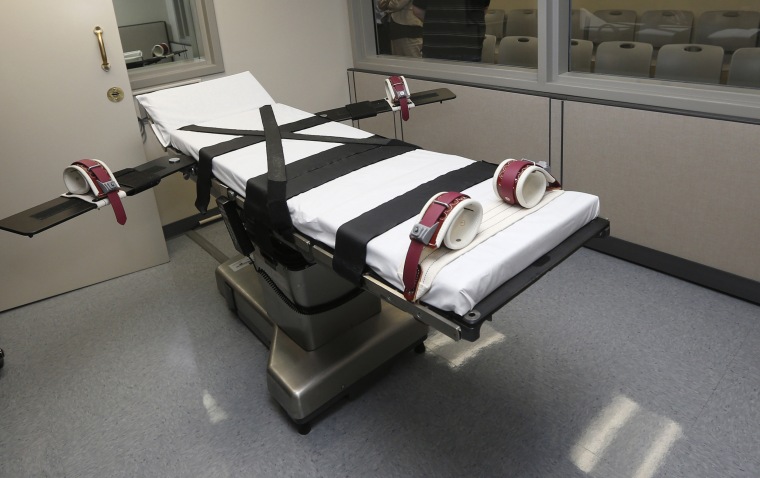For the first time in a decade, the United States does not rank among countries like China and Saudi Arabia as one of the world's top five executioners, a new report says — though advocates working to eliminate the death penalty fear the practice could "return with a vengeance" in 2017.
With 20 people put to death last year, the U.S. had its lowest use of capital punishment since 1991, according to a newly released Amnesty International report. It was one of 23 countries that carried out executions.

James Clark, a death penalty expert for Amnesty International, said the dip in executions can be attributed to a decrease in its use across the entire justice system as jurisdictions see the costliness of capital punishment and its inability to deter crime.
"Prosecutors are charging the death penalty less, jurors are less inclined to hand down death sentences and that trend to stop using the death penalty trickles upward to result in a downward trend in executions we're seeing," Clark told NBC News.
The number of death sentences in the U.S. has been falling steadily since 2009, and fewer states are carrying out executions, Clark said. In 2016, it was contained to only five states: Alabama, Florida, Georgia, Missouri and Texas. Two years prior, seven states had put inmates to death.
"Even states that are able to execute are doing it far less frequently," Clark said. "Those few states that are pursuing executions are becoming an isolated minority."
Pending litigation on lethal injection protocols has also slowed down or halted executions in some states, as death row inmates claim that a sedative called midazolam fails to effectively knock them out before more painful drugs are injected. Last month, a federal judge ruled that Ohio's lethal injection method may be too painful to be considered constitutional, prompting Gov. John Kasich to postpone the executions of eight men.

Still, some activists fear the resolution of these legal challenges and "law-and-order" rhetoric on the national, state and local level could boost executions in 2017. The report found that nearly 3,000 people remain on death row in the U.S.
Arkansas, one of the 12 states yet to abolish the death penalty, has not been deterred by legal challenges. The state is planning to kill seven men over a 10-day period beginning next week before one of its lethal injection drugs expires at the end of April.
"We've seen several executions that result in agony and pain, and that has caused some states to put hold on executions and has put in place legal challenges that have prevented executions from going forward," Clark said. "But not every state has slowed down as a result of that. We're calling on authorities to look rationally at the justice system rather than whipping up a sense of fear."
Globally, the report found use of the death penalty was down 37 percent from 2015. Of the world's 1,032 total executions, China, Saudi Arabia, Iran, Iraq and Pakistan put the most people to death, the report found. The total excludes China, where the organization estimates that thousands of executions were secretly undertaken.